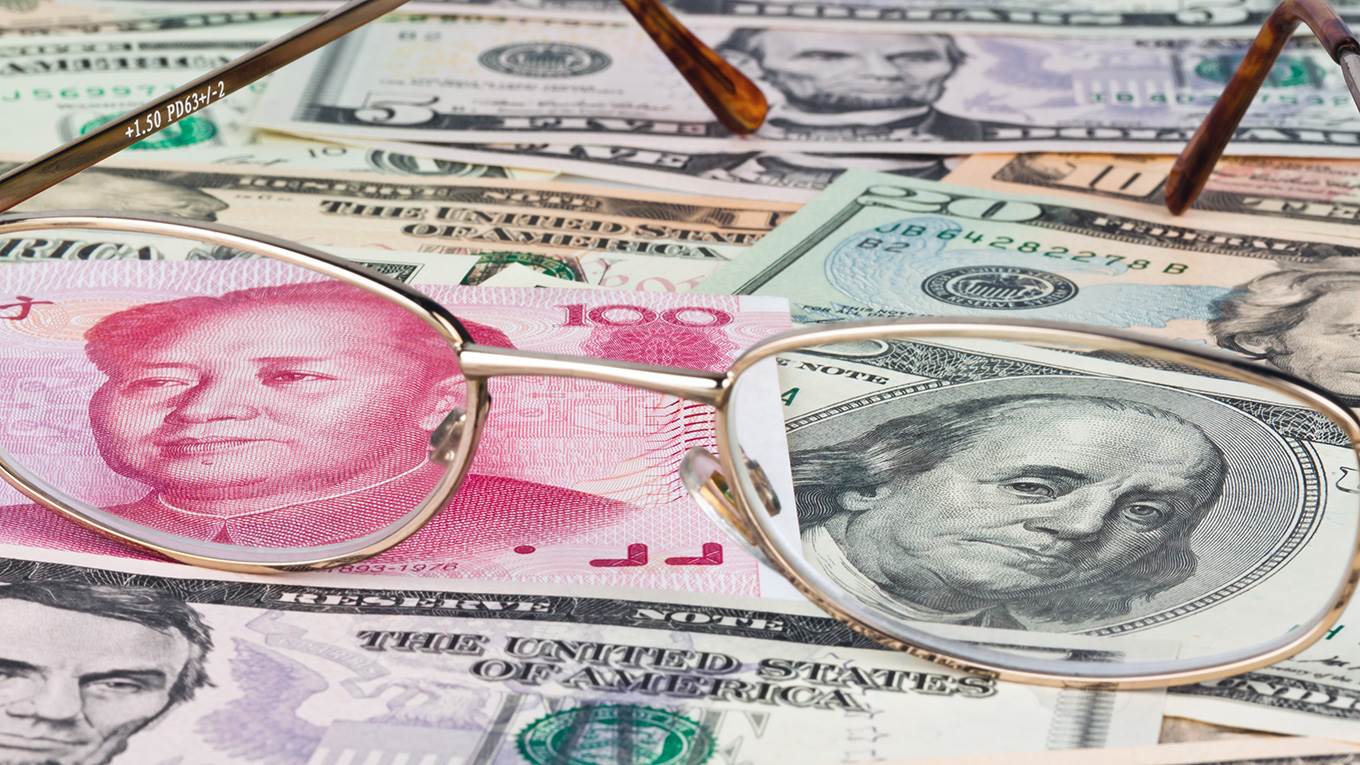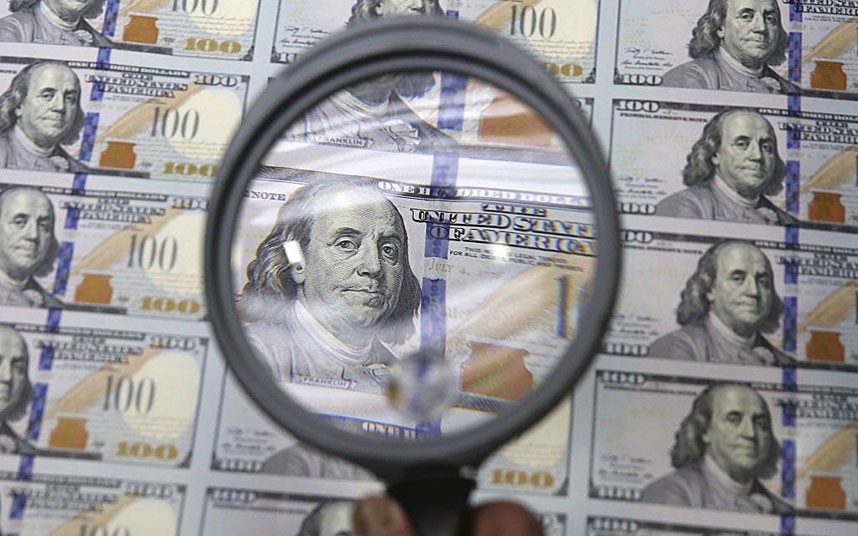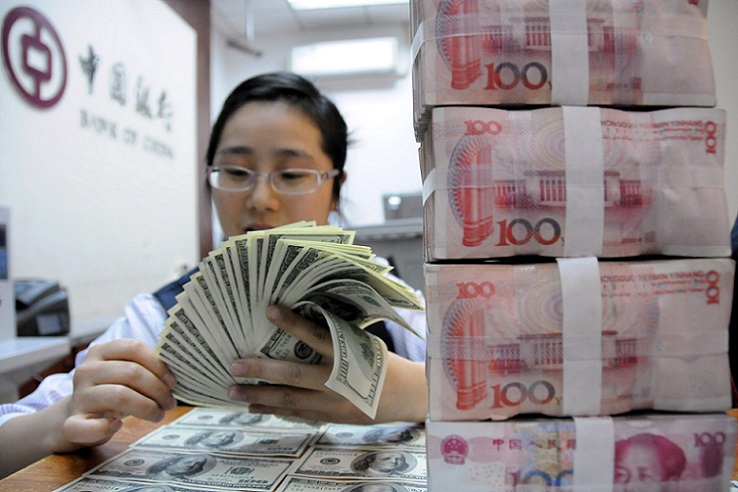Efforts to reduce US dollar hegemony
By Morgan Brady
 努力减少美元霸权
努力减少美元霸权
特朗普在他的性格和处事风格来说都是一位非传统的总统。他声称无论如何都会以美国的利益为主 。这在他最近的行动中已经能够很明显地表现出。到目前为止,他已经针对许多国家,包括欧盟和加拿大等主要盟国,征收关税。鉴于中美之间对中国的贸易顺差较大,所以中国是其关税的主要目标。而特朗普最近的关税浪潮似乎是以北约成员国土耳其为目标。
世界对这些措施的不满正在增加,目标国家已经开始制定反击措施。反对美国日益增长的贸易保护主义,通过减少美元在国际贸易中的作用,从而避开美国的金融体系。
尼克松冲击和美元崛起
自1971年尼克松冲击(当时美国总统理查德尼克松决定从黄金中解脱美元)以来,,美元一直是全球主要货币。这发生在美国在第二次世界大战结束积累了大量全球黄金之后,此举被认为是近代历史上最大的财富没收。另一项有助于进一步巩固美元在全球经济中巩固的措施是与沙特阿拉伯的石油合作。
根据中央银行三年期调查(2013年),美元是2013年交易最多的货币,因为2013年4月所有交易中有87%涉及美元。根据2014年的统计数据,截至2014年5月,整个货币流通量约为1.28万亿美元。
甚至在与美国无关的国家之间,美元也成为国际贸易的主要货币。它还成为了央行的主要储备货币。这种美元地位的好处很多。包括美国能够有效地向世界其他地区输出通货膨胀的能力,以及美国维持20万亿以上巨额公共债务的能力。
特朗普疏远了前盟友
由于特朗普政府已经对包括俄罗斯,中国,土耳其和欧盟在内的许多国家发起了贸易战,这些国家的反应就是放弃使用美元最为第一以及快速交易货币。
俄罗斯和土耳其开始努力,同意在所有交易中使用当地货币卢布和里拉。负责管理85% 俄罗斯武器出口的公司“Ros Auburn Export”宣布,它决定放弃用美元进行所有武器装备和军事装备的交易。
Recap Tayeb Erdogan还宣布,他已经与中国,伊朗,乌克兰和俄罗斯达成协议,在他们的商业交易中使用他们自己的当地货币。
为响应美国对俄罗斯银行系统的制裁,迪米特里梅德韦杰夫宣布,俄罗斯将把美元投资降至最低水平,包括美国债券。俄罗斯商务部长宣布俄罗斯已决定以当地货币与所有中东,非洲,亚洲和拉丁美洲国家做交易。俄罗斯汽车业开始以土耳其里拉的形式向土耳其出售其产品。与欧洲的交易可能以欧元进行。欧盟也在考虑用欧元支付伊朗的石油进口和与伊朗的 交易。
中国将2008年的金融危机归咎于美元的霸权。自2009年以来,它一直是世界上最大的出口国,这使其处于有利地位,可以提供人民币作为替代品。早在3月份,中国就推出了以人民币计价的石油期货合约。 它帮助中国成为世界上最大的石油消费国。
由于美国仍然是世界上最大的生产国(全球GDP最高),而且由于它是世界上最大的消费国,因此可能需要一段时间才能用其他货币取代美元。
美元贬值的影响
研究表明,美元的逐步贬值有可能转变成急剧而突然的贬值。但在任何一种情况下,这种贬值都会进一步增加美国的贸易逆差,新的全球货币可能会上升。也有种假设,美元可能不会被另一种单一货币所取代。而是许多不同的货币。
结论
近70年来,美元一直处于主导地位。 美国似乎在利用其货币实施制裁。但是如果美元不再处于主导地位,这些制裁也就毫无用处。
 Donald Trump is an unconventional president, both in terms of his character and his methods. He is vocal about the fact that he prioritizes America’s interests above all. And this is evident also in his actions. He has thus far targeted many countries, including key allies such as the EU and Canada, with tariffs. China is the main target of his tariffs, given the large trade surplus between the two countries in favor of China. And Trump’s most recent wave of tariffs seems to be targeting Turkey, a NATO member.
Donald Trump is an unconventional president, both in terms of his character and his methods. He is vocal about the fact that he prioritizes America’s interests above all. And this is evident also in his actions. He has thus far targeted many countries, including key allies such as the EU and Canada, with tariffs. China is the main target of his tariffs, given the large trade surplus between the two countries in favor of China. And Trump’s most recent wave of tariffs seems to be targeting Turkey, a NATO member.
The world’s discontent with these measures is growing, and responsive measures by targeted countries are already beginning to take shape. A cornerstone step in countering America’s increasing protectionist agenda entails reducing the role of the US dollar in international trade, and thus steering away from the American financial system.
The Nixon Shock and Rise of the Dollar
The dollar has been the most prominent global currency since the Nixon shock in 1971 when the then-US-President Richard Nixon decided to unpeg the dollar from gold. This took place after America had managed to accumulate a large sum of global gold following WWII, and the move has been considered among the largest confiscations of wealth in recent history. Another measure that helped to further consolidate the entrenchment of the US dollar in the global economy has been the denomination of oil in this currency, in cooperation with Saudi Arabia.
According to the Triennial Central Bank Survey (2013), the US dollar was the most traded currency in 2013, as 87% of all trades in April 2013 involved the US dollar. According to 2014 statistics, approximately $1.28 trillion were in circulation as of May, 2014.
The US dollar became the main currency in international trade, even between countries that are not relevant to the US. It also became the main reserve currency of central banks. Benefits of this status of the dollar are many. They include America’s ability to export inflation to the rest of the world effectively, and the ability of the US to maintain a staggering public debt of over 20 trillion.
 Trump Alienates Former Allies
Trump Alienates Former Allies
And as the Trump administration has initiated a trade war against many countries including Russia, China, Turkey, and the European Union, the response of those countries came in form of dropping the US dollar in their commercial transactions as a first and swift step. This could pave the way for further and more decisive steps.
Russia and Turkey began the effort by agreeing to use their local currencies, the Ruble and the Lira respectively, in all of their transactions. The Russian arms company “Ros Auburn Export” which manages 85 percent of Russian exports, announced that it has decided to abandon the dollar in all of its sales of weaponry and military equipment.
Tayeb Erdogan, also announced that he has reached a deal with China, Iran, Ukraine, and Russia, to use their own local currencies in their commercial transactions.
Dimitri Medvedev, in response to America’s sanction on the Russian banking system, announced that Russia would reduce its US dollar investments to the minimum, including US bonds. The Russian commerce minister announced that Russia has decided to deal with all middle-eastern, African, Asian, and Latin American countries, in their local currencies. Russian automotive sector started to sell its production to Turkey in Turkish Lira. Transactions with Europe are likely to be done in Euro. European Union is also considering paying for Iranian oil imports and transactions with Iran in Euro.
China has blamed the financial crisis of 2008 on the hegemony of the US dollar. And since 2009, it has been the biggest exporter in the world, which puts it in an advantageous position to offer its currency, the Yuan, as a replacement. Back in March, China introduced its Yuan denominated oil futures contracts. Further steps can follow, and petrodollar can turn into a petroyuan. It helps China that it is the world’s largest consumer of oil.
Because the US still is the biggest producer in the world (with the highest GDP globally) and since it is the biggest world consumer, it may take a while for the dollar to be replaced.
Impact of the Devaluation of the Dollar
Research shows that a gradual devaluation of the dollar is more likely to happen than a sharp and sudden devaluation. But in either of the two cases, this devaluation would further increase the US trade deficit, and a new global currency may rise. But despite this assumption, the US dollar may not be replaced by another single currency. It may very well be replaced by a basket of currencies.
Conclusion
US dollar has been dominant for almost 70 years. But pressures are mounting against its hegemony, thanks to President Trump’s bullying tactics in part. The US seems to be using its currency to impose sanctions, and without the supremacy of the dollar, those sanctions are useless. A fall from grace for the dollar will be good news for countries most affected by those sanctions. Relying on local currencies can be a good solution, but it is likely to be risky over the short term. Over the long run, a basket of currencies may be best poised to replace the dollar, especially given that the world is heading in the direction of more decentralization including that of currency. The transition may be rough, but a new more efficient global financial system might be burgeoning as a result of the process.